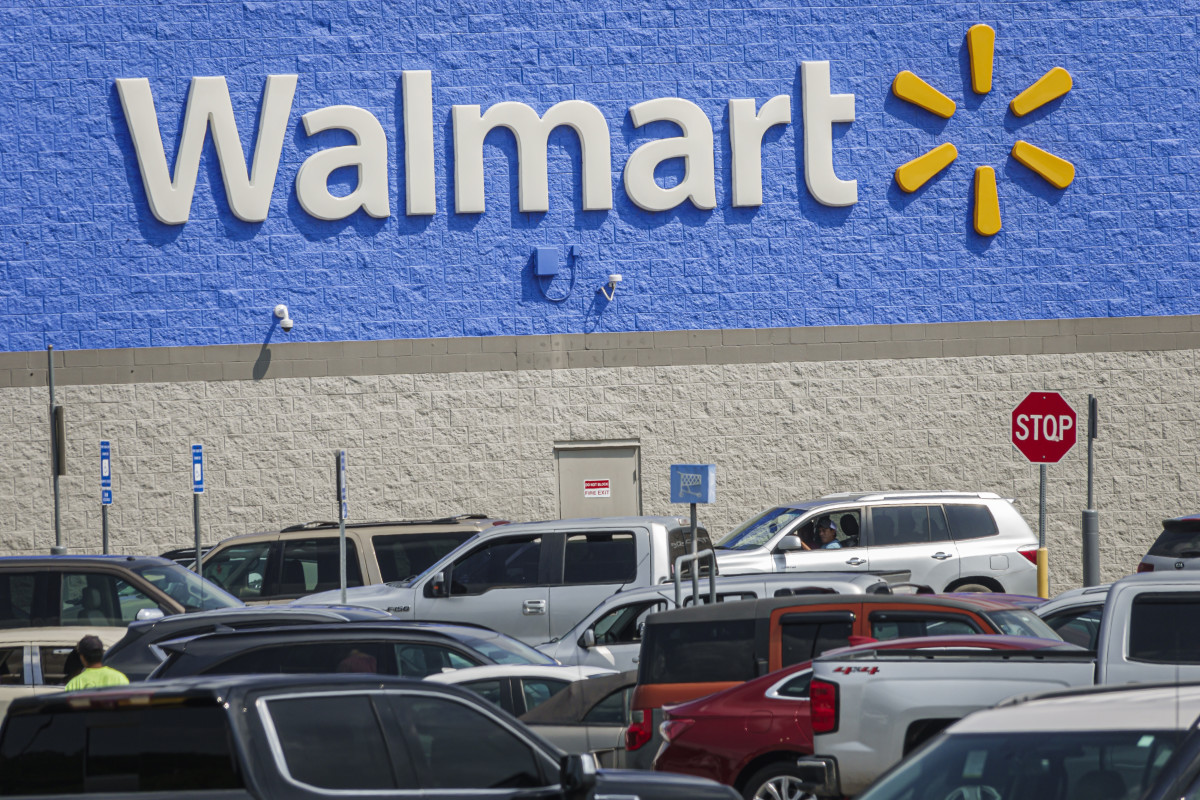
You don't need to be a data wonk or an economist to sense that the price of many things is higher than it was about a year ago.
Americans are cutting costs everywhere they can, whether that means trimming the budget for eating out at restaurants, eliminating that daily $5 cup of coffee, or traveling less during the pricier summer months.
Related: Huge shipping company files Chapter 11 bankruptcy to liquidate
Many of these items fall under the consumer discretionary category, meaning customers can determine when they want to spring for them – if at all. And when prices go up, typically, many consumer discretionary stocks fall, since consumers begin to hunker down and watch their nonessential purchases a lot closer.
More Retail:
- Ulta CEO sounds the alarm on a growing problem
- Lululemon releases a first-of-its-kind product
- Target store introduces a new 'over 18' policy
- Amazon launches genius new subscription product
It's part of the reason why Starbucks (SBUX) and McDonald's (MCD) financials have been down in recent quarters. Customers are finding it harder to justify a recurring pricey cup of coffee or finding the value in a so-called value meal on the go.
“We are operating in a challenging consumer environment. You see the impact of that in away-from-home consumption," then-CEO Laxman Narasimhan said in Starbucks' earnings call in late July.
He added that many customers now prefer to buy their coffee in bulk at the grocery store instead of out at a cafe.
McDonald's CEO Chris Kempczinski warned of a similar trend.
"Beginning last year, we warned of a more discriminating consumer, particularly among lower-income households,” he said, adding, "“And as this year progressed, those pressures have deepened and broadened. … Industry traffic has declined in major markets like the U.S., Australia, Canada and Germany.”
CPI numbers show prices are still up
It's not just Starbucks and McDonald's that felt the pinch.
The Consumer Price Index (CPI), reported on Aug. 14, showed that prices rose 2.9% over the last 12 months. The index was up 0.2% on the month, after falling 0.1% during the month of June.
Here's a look at how some key goods and services changed compared to just one month prior:
- Food: increase 0.2%
- Food at home: increase 0.2%
- Food away from home: increase 0.1%
- Electricity: increase 0.1%
- New cars: decrease 0.2%
- Used cars: decrease 2.3%
- Apparel: decrease 0.4%
- Medical care commodities: increase 0.2%
- Shelter: increase 0.4%
- Transportation: increase 0.3%
Chief among those price increases has been food.
"The food index increased 0.2 percent in July, as it did in June," the CPI reports.
"The index for food at home rose 0.1 percent in July. Three of the six major grocery store food group indexes increased over the month while the other three indexes declined in July. The index for meats, poultry, fish, and eggs rose 0.7 percent in July as the index for eggs increased 5.5 percent. The fruits and vegetables index rose 0.8 percent over the month and the nonalcoholic beverages index increased 0.5 percent."
Related: Struggling Home Depot rival files for Chapter 11 bankruptcy
Away from home, as at restaurants, it's still pricey.
"The food away from home index rose 0.2 percent in July, after rising 0.4 percent in each of the preceding two months," the report finds.
More people shopping at Walmart
And while some economists claim inflation is cooling, the average American is still feeling the pinch at the checkout counter.
This is partly why consumer staples companies like Walmart (WMT) have seen such positive financials. Unlike in the consumer discretionary category, customers still need to buy staples like groceries on a regular basis.
And it seems that more Americans are shopping at Walmart for the prospect of cost savings – and the retail giant's most recent earnings report speaks for itself.
Q2 2025 earnings saw yet another impressive achievement for the store. Comparable store sales, which measures the performance of stores open for at least one year, was up 4.2% and operating income was up 8.5% for the quarter.
Related: Walmart’s newest brand is a big hit with wealthy shoppers
E-commerce sales were also up 22% in the U.S.
Unlike at Starbucks and McDonald's, which has been warning of a warier customer for months, Walmart says its customer base is enthusiastic and robust.
“We aren’t experiencing a weaker consumer overall,” Walmart CEO Doug McMillon told analysts during the earnings call. “Customers from all income levels are looking for value and we have it.”
Walmart has embarked on a massive campaign in 2024 to return its food prices back to pre-inflation levels. The rollback affects thousands of items in stores and has been a success across wealth levels.
"Each part of the business is growing," McMillon said. "Store and club sales are up, e-commerce is compounding as we layer pickup and even faster growth in delivery as our speed improves."
Walmart shares were up 8.1% in the last week. They're up 39% year to date. McDonalds was up 4%.
Starbucks was up 26.6%. The gain was attributable to the company replacing Narasimhan with Brian Niccol as CEO. Niccol, who starts in September, had led a very successful turnaround at Chipotle Mexican Grill (CMG) .
Related: Veteran fund manager picks favorite stocks for 2024







